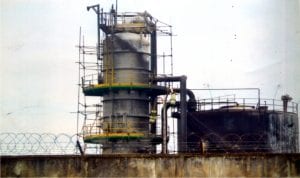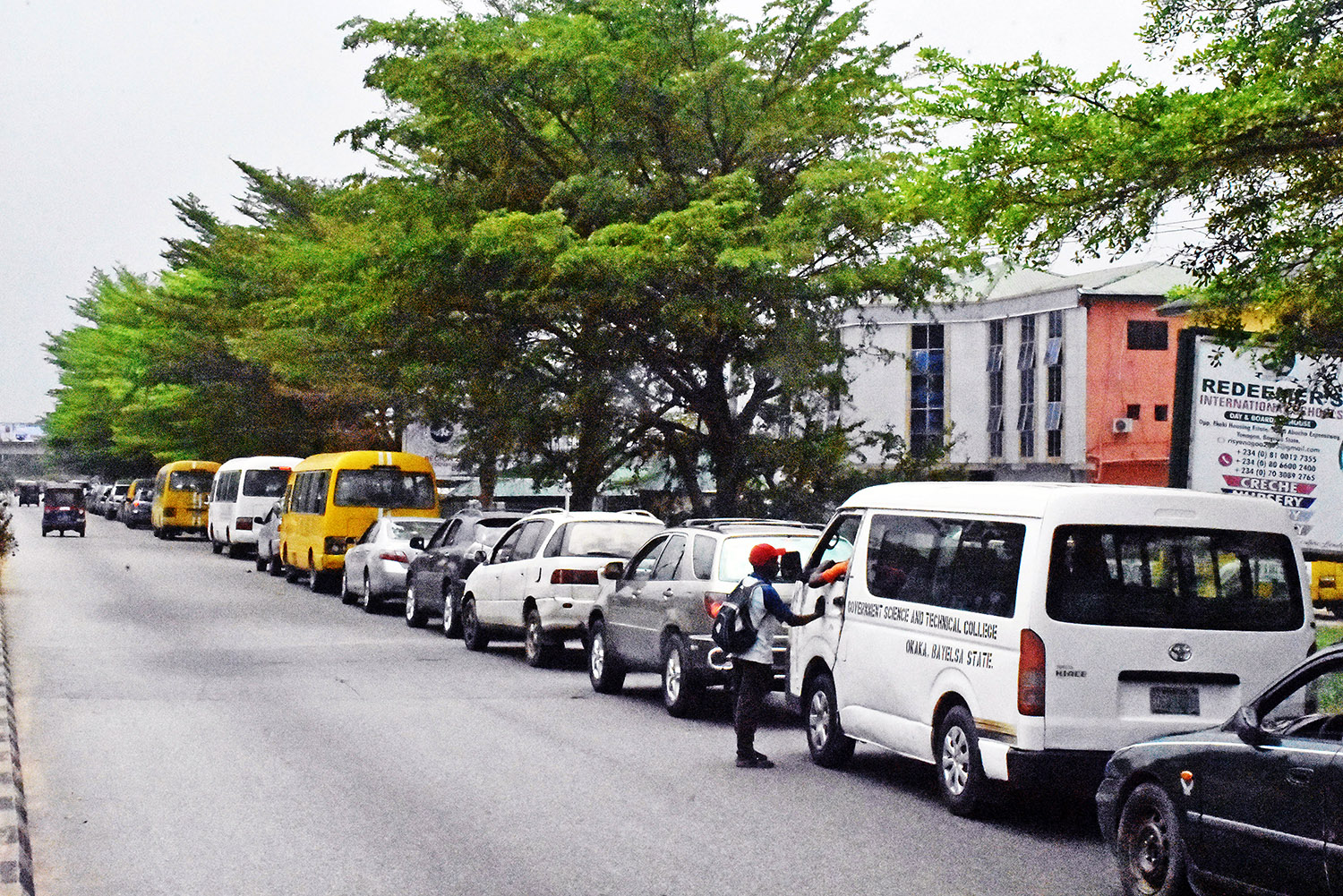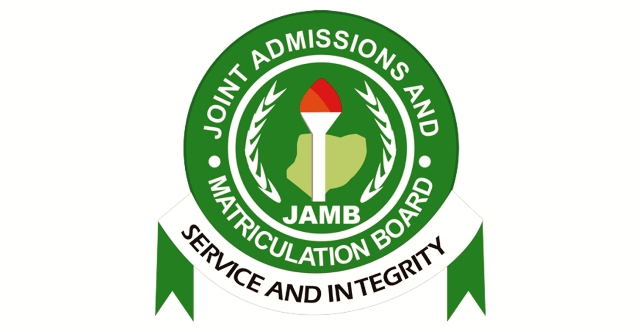Business
Creating Jobs Via Resuscitation Of Moribund Industries

The production tank belonging to Nigeria Agip Oil Company (NAOC) in Ebocha Community, Ogba/Egbema/Ndoni Local Government Area of Rivers State.
Unarguably, unemploy
ment has reached alarming proportions in the country, especially among graduates of tertiary institutions.
This is partly because the Nigerian economy cannot absorb the growing number of graduates produced annually by the nation’s tertiary institutions.
Compounding the problem, tertiary institutions produce more graduates in the humanities and social sciences as a result their failure to adhere to the national admission policy, which prescribes 60:40 ratio in favour of the sciences.
The areas of specialisation of the graduates notwithstanding, experts insist that sustainable employment can be created via the manufacturing sector.
They are of the view that if state governments can revitalise the moribund industries in their states, this will reduce the unemployment rate, while boosting their internally generated revenue as well.
Several moribund industries, which were unfortunately blue-chip industries of yesteryears, now dot many parts of the country.
Concerned stakeholders, therefore, acclaim the recent pronouncement of Gov. Okezie Ikpeazu of Abia to resuscitate the Golden Guinea Breweries in Umuahia.
Mr Bonnie Iwuoha, the Commissioner for Information and Strategy, broke the cheery news about the state government’s plans to reopen the brewery when he addressed journalists recently in Umuahia.
In addition to Golden Guinea, the commissioner said that the International Glass Industry in Aba would also bounce back to life.
Golden Guinea was established in 1960 by the administration of Dr Michael Okpara, the then Premier of the defunct Eastern Region, and incorporated two years later.
It became an economic epicentre and financial livewire, not only for the people of the then Eastern Region, but also for natives of Umuahia who enjoyed the socio-economic benevolence it offered through its social responsibility programmes.
In fact, the products of Golden Guinea Breweries like Golden Guinea lager, Eagle Stout and Bergdorf lager received appreciable patronage from 1960 to 2005 when it was eventually shut.
Concerned stakeholders, nonetheless, urge Ikpeazu to refrain from making empty promises like his predecessor, Chief T.A. Orji, who promised to revive the company.
Indeed, Orji in 2012 inaugurated a committee to look into ways of reviving the 54-year-old company.
He vowed to revive the brewery before leaving office, a pledge he failed to fulfil.
On the other hand, the International Glass Industry (IGI), Aba, also owned by the Abia Government, was leased to the Churchgate Group and it is showing signs of improvement.
IGI’s General Manager, Mr Kelechi Onuiri, said recently in Aba that the company had resumed the production of glass products.
He said that the factory, which started production late in March, produced and supplied more than 740,278 pharmaceutical bottles within two weeks of its resumption.
He said that the factory was currently servicing the needs of pharmaceutical industries outside the state.
Onuiri said that the company had employed more than 500 workers since its resumption to ensure full circle production.
“Right now, we have many people working here; we have employed more than 500 workers. Of course, we will take more people if need be,” he said.
However, the story is somewhat different with regard to the Modern Ceramic Industries in Umuahia.
After years of inactivity, the company was handed over to UCL Consortium, promoted by the Catholic Diocese of Umuahia.
Regrettably, the company’s handover could not bring it back to life.
Mr Uwakwe Nwachukwu, an economist, recalled that the Golden Guinness Breweries was one of the most successful breweries in Nigeria until it became moribund, adding: “Its collapse was mainly due to bad or inefficient management.’’
He said that board and management appointments were not based on knowledge and expertise, but purely on political considerations.
“More often than not, round pegs were put in square holes. Consequently, the brewery, which hitherto employed many hands and created considerable wealth, died,’’ he said.
Nwachukwu, who once worked in Golden Guinea as a casual employee for a fleeting period, said that the idea of revitalising or re-building the factory was, indeed, a welcome development.
According to him, a lot of benefits will accrue to the state and the people if the factory is revived.
“Other ancillary jobs or businesses will spring up within the factory environment and this will also reduce the number of unemployed persons in our society.
“In a time like this when unemployment in Nigeria has become a key challenge, the factory will add a lot value to the economy of Abia and the Nigerian economy as a whole.
“Furthermore, it will be quite plausible if the government could give consideration to the revitalisation of the Modern Ceramics Company, Umuahia.
“The ceramics company has good prospects for jobs as well as wealth creation for the government and the people,’’ he added.
Nwachukwu urged Ikpeazu not to relent in his efforts to bring back the “dead factories’’ back to life.
He urged him to borrow a leaf from the Rivers Government which successfully resuscitated Pabod Breweries.
“Rivers is one example; the once moribund Pabod Breweries was rebuilt by the last administration in the state.
“Today, Pabod Breweries engages many hands and it is the proud producer of Grand Beer and the now fancied or popular malt drink, Grand Malt.
“This can be replicated by the Abia Government, using the Golden Guinea Breweries and the Modern Ceramics Company in Umuahia as the platform,’’ he said.
In the same vein, Prof Aloysius Okolie of the Department of Political Science, University of Nigeria, Nsukka, urged state governors in the South East geopolitical zone to revive the collapsed industries in their states in order to create more jobs.
He said that the revival of the industries would create more employment opportunities for millions of jobless youths, while generating additional revenue for the states.
“Revitalising of these industries will be a means of diversifying the economy of the states, especially now when the country is experiencing economic melt-down,’’ he added.
There has been a drastic decline in allocations from the Federation Account to states and local governments as result of a sharp decline in crude oil prices in the international market.
“Some states and local governments in the country now find it difficult to pay their workers’ monthly salaries because of this drop in federal allocations,’’ Okolie said.
He, therefore, commended Gov. Ikpeazu’s move to revive Golden Guinea Breweries in Umuahia, describing it as a welcome development.
He, however, suggested that the state government should not own 100 per cent equity shares in the brewery.
“Government should have at most 30 per cent equity shares so as to allow the management of the brewery to be in the hands of private people who are expert in managing such companies.
“Government should also carry along the host community in order to protect equipment and facilities in that brewery,’’ he added.
Okolie said that pragmatic efforts should be made to revive industries like the cashew industry in Enugu, the ceramics industry in Umuahia, among others, which had become moribund.
“The industrial sector is a critical sector of any economy; it helps a country not to depend completely on foreign products.
“Nigeria is a dumping ground for foreign goods today because of the years of neglect which led to the collapse of many industries.
“Other governors in South East should emulate the Abia governor’s good example of reviving the popular Golden Guinea Brewery Umuahia, in efforts to improve the economy of their states and reducing unemployment,’’ he said.
Analysts underscore the need for the federal, state and local governments to resuscitate all the moribund industries in their domains.
“This because industries provide employment opportunities for the youth, particularly graduates of engineering and physical sciences,’’ some of the analysts say.
Obike Ukoh is of the News Agency of Nigeria (NAN)
Obike Ukoh
Business
Fuel Scarcity: IPMAN threatens shutdown over bridging claims

The Independent Petroleum Marketers Association of Nigeria (IPMAN) Depot Chairmen Forum, has exonerated its members from the current fuel scarcity in the country.
According to IPMAN, this is caused by its inability to source petroleum products.
The IPMAN Depot Chairmen Forum also threatened to withdraw its services over non-payment of N200 billion bridging claims by the Nigerian Midstream and Downstream Petroleum Regulatory Authority (NMDPRA) to its members, since 2022.
Alhaji Yahaya Alhassan, the Chairman, of the Forum said this while briefing newsmen in Abuja, yesterday.
Alhassan said the Nigerian National Petroleum Company Limited (NNPC Ltd.) was the sole importer of the product, but the marketers could not source products from NNPC Ltd. deport, rather from the private depots at high rate.
“We cannot buy fuel from the private depots at N950 and transport the product from Lagos to the North and other parts of the country with N2 million and still sell it at N900 or N1, 000.
“It is expedient for us to state that we are more pained by the non-availability of petroleum products in the country, which has given rise to another round of untold hardship for Nigerians.
“Contrary to claims that IPMAN members are hoarding Premium Motor Spirit (PMS) known as fuel, we would like to categorically state that PMS scarcity is wholly triggered by inability to get fuel from NNPC and not IPMAN,’’ he said.
Meanwhile, the NNPC Ltd. Chief Corporate Communications Officer, Olufemi Soneye said the disruption was due to logistical issues which had since been resolved.
“We currently have an availability of products exceeding 1.5 billion litres, which can last for at least 30 days. Unfortunately, we experienced a three-day disruption in distribution due to logistical issues, which has since been resolved.
“However, as you know, overcoming such disruptions typically requires double the amount of time to return to normal operations.
“Some folks are taking advantage of this situation to maximise profits. Thankfully, product scarcity has been minimal lately, but these folks might be exploiting the situation for unwarranted gain,’’ Soneye said.
He however, said the lines would clear out soon.
On the non-payment of bridging claims, the IPMAN forum said it was distressed and depressed by the laidback attitude of the NMDPRA towards the survival its member’s businesses, arising from its refusal in paying the claims.
“It is with deep frustration that we have assembled here today as the IPMAN Depot Chairmen Forum. It is also disheartening to note that some of our members have completely shut down businesses and retrenched employees.
“As businessmen and women, our members acquired bank loans to keep their fuel retail outlets running on a daily basis across the nooks and crannies of Nigeria in order to serve the teeming population of Nigerians,’’ Alhassan said.
He recalled that Sen. Heineken Lokpobiri, Minister of State Petroleum Resources (Oil), at a stakeholders meeting in February mandated the NMDPRA management to clear the entire debt in 40 days.
“However, today, we have crossed the 40 days’ time lapse given to the NMDPRA to clear the debt, and it is shameful to state that only the paltry sum of N13 billion has been paid, ignoring minister’s directive.
“We are not happy with the indiscriminate increment in the issuance and renewal of Sales and Storage Licence, by the NMDPRA, and the subsequent delays in acquiring the licence, which our members are recently subjected to.
“We are also calling on President Bola Tinubu to look into this unwholesome figure which is highly detrimental to our business and reverse it forthwith, as it is bound to impact negatively on the masses.
“We are poised to take far reaching decisions that may cripple the supply and sales of petroleum products across Nigeria if our demands are not met within the shortest period of time.
“We are collectively prepared to withdraw our services, shut down every single outlet, and suspend lifting of products forthwith till our demands are fully met, and the consequences will be terrible.
“We call on our members to however remain resolute and law abiding, even as we draw close to the immediate ultimatum for our demands to be met by the NMDPRA,’’ the chairman said.
Reacting to the IPMAN’s claims, the Acting Head, Corporate Communications, NMDPRA, Seiyefa Osanebi said the bridging claims payment was ongoing.
“The bridging claims payment is always an ongoing process,” she said.
Maritime
Shippers’ Council Registers 160 Port Operators

The Nigerian Shippers Council (NSC) says it has registered 160 Port stakeholders into its Regulated Port Service Provider and Users platform since the initiative began in 2023.
Executive Secretary, NSC, Mr Pius Akutah, made the disclosure on the sideline of a sensitisation programme by the commission for port operators in Lagos, with the theme, “Regulated Port Service Provider and Users”.
Represented by the Director, Consumer Affairs, Chief Cajetan Agu, Akutah emphasised the significance of the programme for stakeholders.
He said the sensitisation programme was the second edition after its commencement during the last quarter of 2023.
The Secretary said the 160 registered port operators consist of agencies, terminal operators, shipping companies, individual port users as well as service providers.
“We invited the ports stakeholders for enlightening them on the processes for online registration of Regulated Port Service Provider and Users.
“We have demonstrated to them how to register and how to make payment and we were able to present before them the various categories of the registration.
“The rate of payment is also in the registration. The payment of each group depends on the operation. A shipper pays N30,000, terminal operators and shipping companies pay N300,000, truckers also pay N30,000, while some pay N50,000 and N100,000.
“The Council was able to intimate them on the benefits, because port users benefit more as we help to interface on reducing port charges from time to time”, Akutah said.
He said that there was a need to continue to work with port operators to stop delays and eliminate high costs to make the port efficient.
Also speaking, the Deputy Director, Stakeholders, Service, NSC, Mr Celestine Akujobi, said “the sensitisation exercise was important for the council to enable us bring all the port stakeholders together”.
According to him, this is to avoid challenges during the implementation of the council’s responsibilities.
“By the time we introduce sanctions on defaulters, no operators will complain that he or she is not aware of the registration.
“I’m happy with the turnout of this sensitisation. This shows that the operators are well informed of the statutory friction of the council as the port regulator.
“The final implementation will commence as soon as we discover that all the operators have keyed into the portal.
“We are engaging other ports across the country and we’re hopeful that before the last quater of 2024, the council will implement sanctions on defaulting operators”, Akujobi said.
Earlier, Vice Chairman, National Association of Government Approved Freight Forwards (NAGAFF), Dr Ifeanyi Emoh, said port challenges were enormous, adding that they originated from some of the government agencies.
Emoh urged the council to look into regulating other government agencies, so that there could be a window through which they can collect port charges collectively instead of indiscriminately.
By: Chinedu Wosu
Business
Chivita, Hollandia Reward Outstanding Trade Partners At Annual Conference

Chivita| Hollandia (CHI Limited) leading fruit juice and value-added dairy manufacturer in Nigeria has rewarded its long standing distributors at the recently held 2024 Distributor Conference. The event with the theme, “Break Boundaries Exceed Expectations” served as a platform to recognise and reward the exceptional contribution of the distributors and wholesalers who play a critical role in Chivita|Hollandia (CHI Limited) success and business goals for the year.
The Distributor Conference was held in two sessions. While the morning session featured keynote addresses, industry insights and brand immersion experience, the evening session was a cultural display of elegance and funfair that culminated in the award presentation and recognition of the contribution the trade partners made to the company in the 2023 year under review.
A key highlight of the event was the award ceremony which acknowledged outstanding trade partners in various regions across the country. The awards recognized commitment, dedication, and outstanding performance in areas of sales growth, brand promotion, and market expansion.
Eelco Weber, Managing Director, Chivita|Hollandia (CHI Limited), stated that the company’s success story is incomplete without the strong partnerships it has built with trade partners. “Today, we celebrate not only the achievements, but the collaborative spirit that has made our growth possible” he said.
Bola Arotiowa, Chief Commercial Officer, Chivita|Hollandia (CHI Limited), in his statement revealed that, the event which was first of its kind will continue to be an annual meeting to enable the company work more closely with its distributors, share insights and action points, help the trade partners familiarize themselves with the company’s goals and objectives for each year, and serve as a driver for mutual success.
“Our distributors are the backbone of Chivita|Hollandia (CHI Limited). Their relentless efforts in distributing our products, promoting our brands, and expanding our reach across the nation is truly commendable. As the bridge between us and our valued consumers, it is very important to reward their hard work and dedication for being an essential part of the Chivita|Hollandia (CHI Limited) family. Together, we will continue to deliver great products to our conusmers which in turn will deliver value to them”, Mr. Arotiowa added.
Speaking at the conference, HajiyaBilikisuSaida, Chief Executive Officer of Smabirm Nigeria Limited, who won the Outstanding Distributor of the Year in North 1 region, and got a reward of two million Naira worth of Chivita|Hollandia (CHI Limited) products expressed delight at the company’s recognition, and stated that the awards served as a way to inspire distributors to do more and put in more effort, which in turn would help both the distributors and the company to grow.
Other outstanding performance distributors of the year rewarded with a two million Naira worth of Chivita|Hollandia (CHI Limited) stock include, Sunny Chuks Limited for East 1 region, MRS FA & Sons Limited for East 2 region, Hussakas Ventures for North 2 region, Rookee 1388 Ventures for Lagos 1 region, Pik N Pil Ventures for Lagos 2 region, FaithJoe Event Management Limited for West 1 region, and Progress Family Nigeria Enterprise for West 2 region.
The annual Distributors Conference aims to strengthen the bond between Chivita|Hollandia (CHI Limited) and its trade partners. This collaborative approach fosters mutual growth and ensures the continued success of the brands in the Nigerian market.
-
News2 days ago
NANS Threatens Nationwide Protest Over Fuel Scarcity
-

 News2 days ago
News2 days agoEx-CBN Director Admits Collecting $600,000 Bribe For Emefiele
-
Nation2 days ago
Ibom Developers Supports 160 Women with Skill Acquisition Training in Akwa Ibom
-

 News2 days ago
News2 days ago1.4m UTME Candidates Scored Below 200 -JAMB
-
News2 days ago
Gunmen Kidnap Four In Abuja
-

 News2 days ago
News2 days agoYou Failed Nigerians, Falana Slams Power Minister
-

 Nation2 days ago
Nation2 days agoIbom Developers Supports 160 Women with Skill Acquisition Training in Akwa Ibom
-
Niger Delta2 days ago
Fire razes 4 shops in Edo

